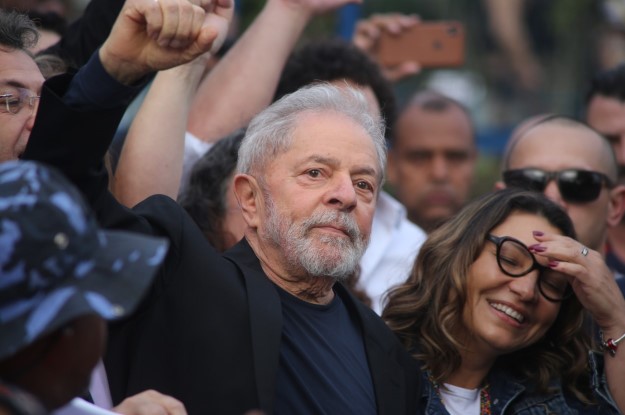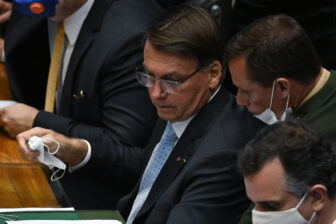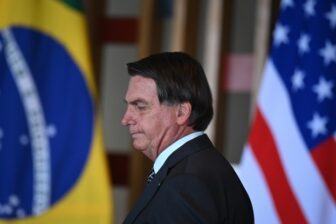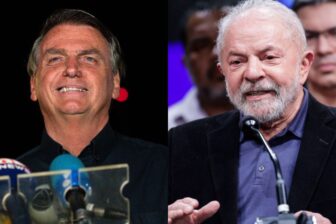Former President Luiz Inácio Lula da Silva may now be able to run in Brazil’s 2022 presidential elections, after a lone Supreme Court justice threw out corruption charges against him.
The ruling, which will be appealed, could set up a showdown between Lula and President Jair Bolsonaro, who has struggled in recent months with record deaths from COVID-19 and a flagging economy.
What now?
AQ asked several observers to offer rapid reaction to the news:
Thomas Traumann, political analyst:
Brazil’s 2022 election began today. The ruling by Supreme Court judge Edson Fachin to invalidate Lula’s convictions brought forward by one year the contest to see who will face Jair Bolsonaro. Lula is again eligible and will be a presidential candidate for a third term.
A IPEC survey published yesterday by O Estado de S. Paulo showed that 50% of Brazilians would certainly vote, or could vote, for Lula. On the other hand, 44% of the poll’s respondents said they wouldn’t choose him at all. Bolsonaro, meanwhile, scored 12 percentage points lower than Lula in voting potential (38%), and had a rejection level 12 points higher (56%).
The probable polarization between Bolsonaro and Lula will contaminate the political environment for coming months and could eliminate the space for other candidacies. There is a risk that when the campaign formally begins in June next year, Bolsonaro and Lula are so ahead of their opponents that there is no time for a third candidate.
This possibility pressures possible candidates such as São Paulo governor João Doria and TV host Luciano Huck to join forces for a single candidacy. Former minister Ciro Gomes will also come under pressure to attempt an agreement that allows an alternative candidacy to Bolsonaro and Lula.
Zeina Latif, economist:
I can’t comment on the legality of the decision, but it is very worrisome to see an entire process be reversed by a single justice. It shows lack of governance. It makes it harder for us to speak about our institutions being strong. It makes it harder for us to rebuild Brazil’s international standing with these types of decisions happening. This is exactly the kind of subject that should have been carefully debated by the Supreme Court as a whole. It sends a very bad signal.
Markets reacted quickly, and a downturn for the currency and assets does bruise the economy. But the most concerning of it all is the prospect of a deeply polarized campaign in 2022. This is what is really concerning. The Bolsonaro administration is simply a complete failure, so the possibility of him being reelected because of a polarized environment is deeply concerning.
Brian Winter, AQ‘s editor in chief:
Everyone will speak now of polarization between Bolsonaro and Lula, but I’m skeptical. The average Brazilian was just 22 when Lula’s presidency ended in 2010. These days he inspires much less love, or hatred, than media or politicians would have us believe. After Lula was released from jail in November 2019, many expected Brazil’s political dynamics to change. But most of his rallies didn’t draw massive crowds or generate all that much buzz on social media (where Brazilian politics happens now).
That said, Lula remains a formidable figure and is probably the favorite to make a runoff against Bolsonaro. If the court ruling stands and he runs, it will be the eighth consecutive election going back to 1989 in which Lula is either a candidate or had a closely aligned candidate running. While antipetismo (sentiment against his Workers’ Party) remains strong in Brazil, and was a decisive trend in October 2020 municipal elections, circumstances are changing as we speak in part due to Bolsonaro’s disastrous management of the pandemic and the continued lackluster economy. I have even heard some Brazilians in financial markets say that they voted against Lula in 2018, but might vote for him in 2022 if it would help get rid of Bolsonaro.
Another question worth asking: How will the military react? Its leaders famously pressured the Supreme Court on the eve of a major ruling involving Lula in 2018. Now of course they are fully involved in Bolsonaro’s government, holding several key positions.
Tony Volpon, chief strategist at WHG:
The market is very sensitive right now and is reacting to any news. The first reaction was negative, but we are very far from the election still. So personally, I think it is still early to say whether this is a negative or a positive development. We can also look at it as, by getting Lula back in the running, and again polarizing the presidential dispute, it diminishes the uncertainties regarding who will run. It may also bring some discipline to the (Bolsonaro) government seeing that now there will be a competitive candidate, as opposed to the “cloud” of multiple uncertain options. It will be really interesting now to see what Huck will do.








